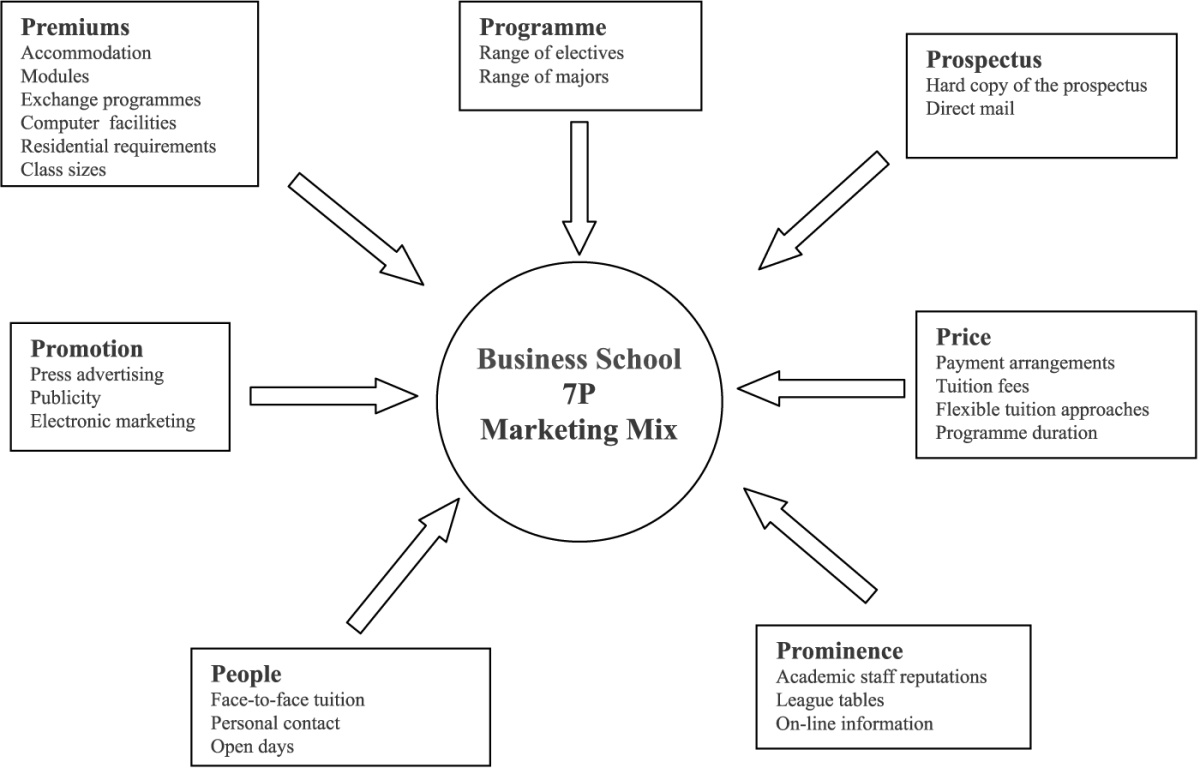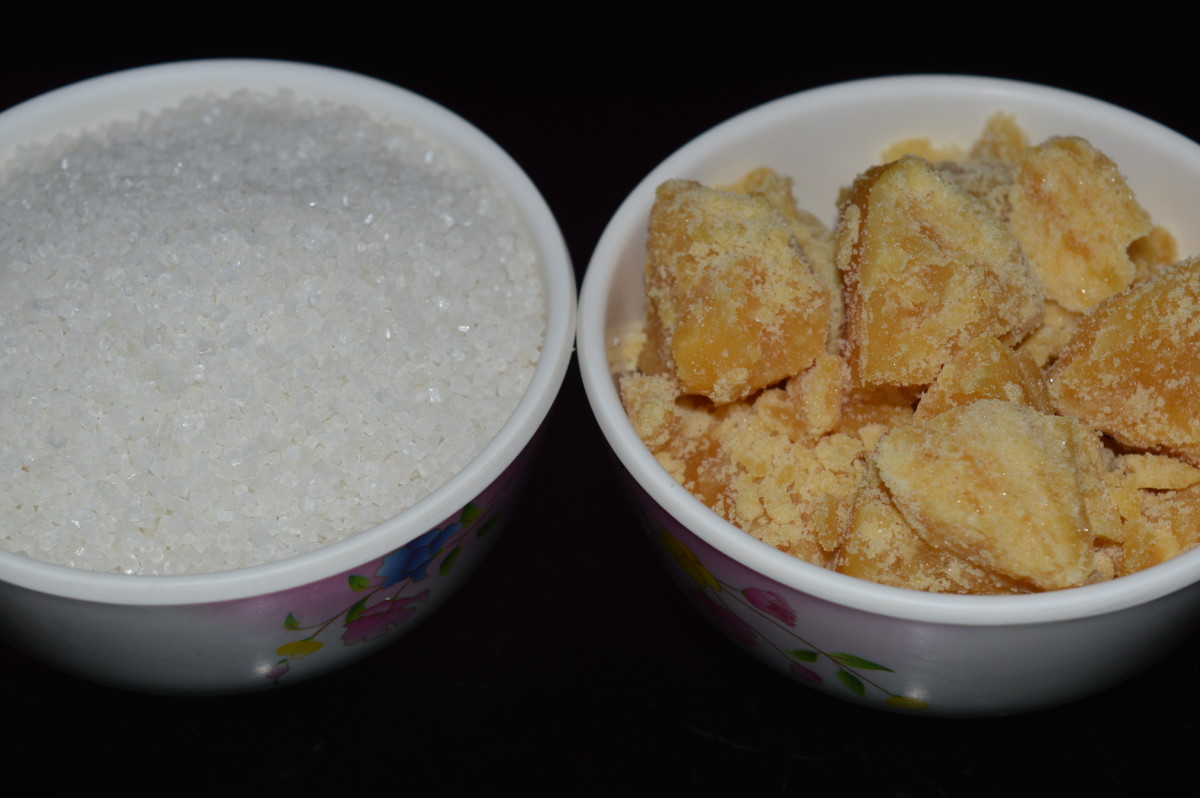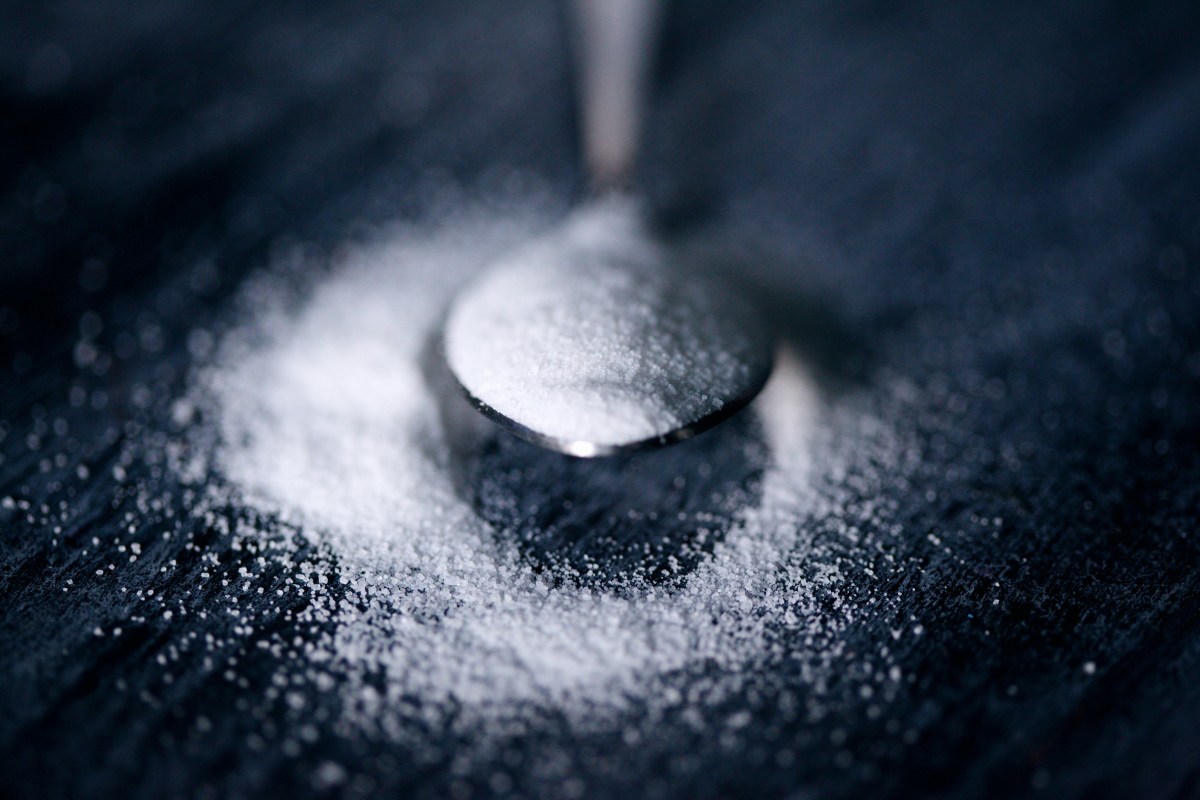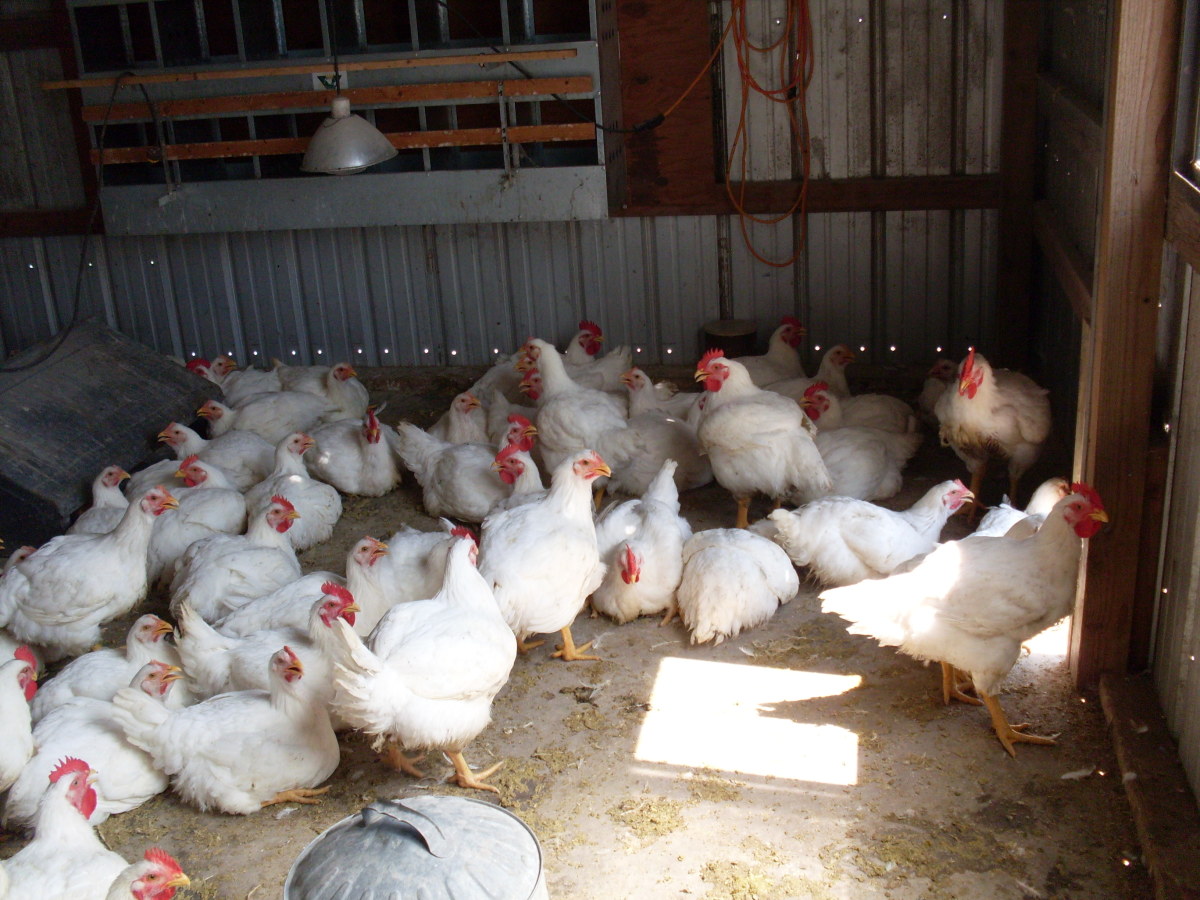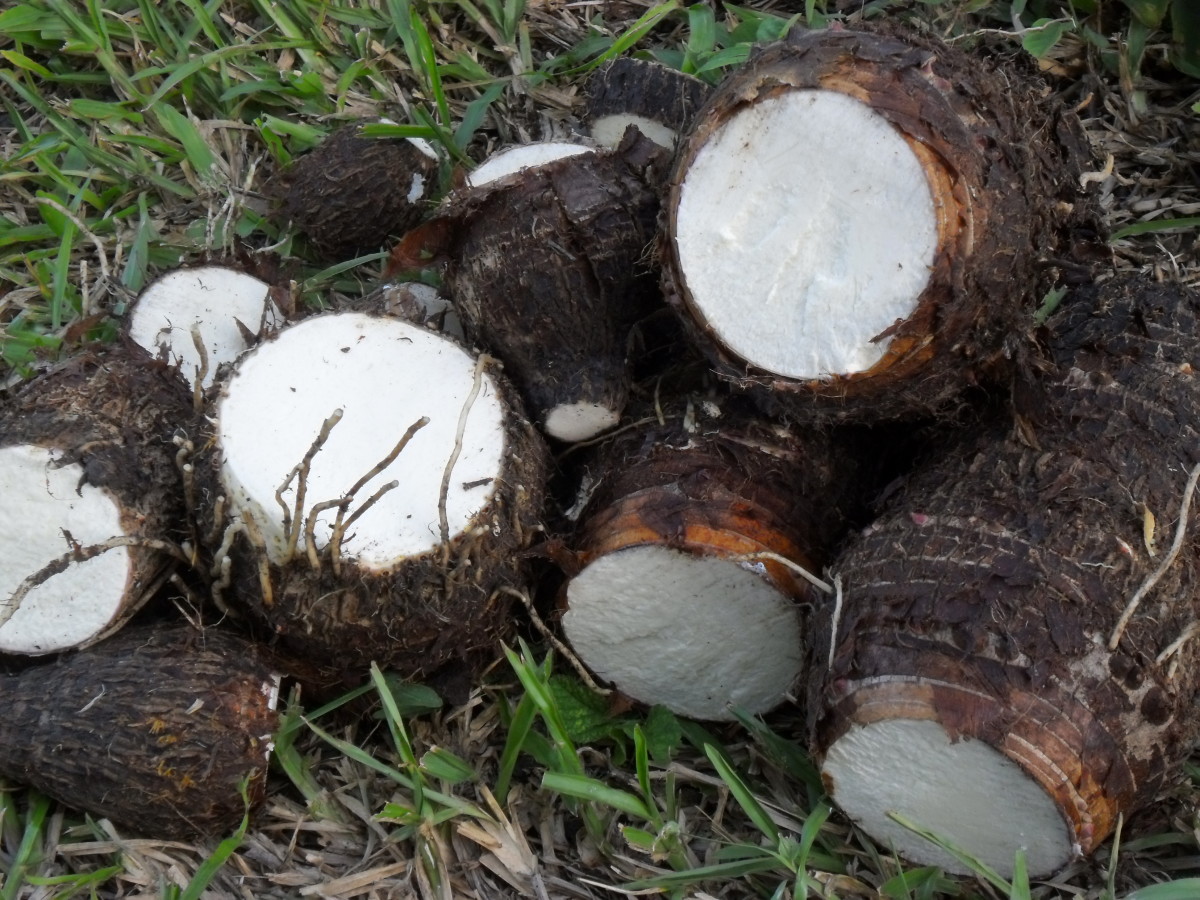Is Stevia the Best Natural Sweetener?
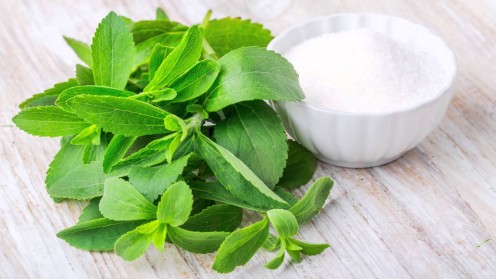
What is Stevia
Stevia is a naturally grown plant native to South America. It has been grown in Brazil and Paraguay for more than one thousand years but was only discovered by western scientists in the early twentieth century. It was found in Paraguay and was tested for its sweetness. It was found to be more than 150 times sweeter than cane sugar.
Whilst the potential uses for this natural plant were obvious, the development of Stevia as a sugar substitute has been a slow and arduous process. Government regulation, patents, research and testing and, of course, muscling in on the global dominance of sugar and sugar producers as the main sweetener, have all proved challenging.

Health Benefits of Stevia
There are a range of health benefits that have been assessed by numerous independent bodies and the general consensus is that stevia is a safe product.
The following list of benefits is provided by organicfacts.net
- Alleviates high blood pressure
- Reduces risk of osteperosis
- Aids weight loss
- May help in the prevention of cancer cells
- Aids in managing diabetes
- Can fight ezcema and asthma
- Prevents cavities and gum disease
Is Stevia Safe?
Stevia has been deemed to be safe. Concerns have been raised about ingesting high levels of the plant but even the World Health Organisation have confirmed that Stevia presents no health risk when consumed in acceptable quantities.
However, many governments around the world have still not carried out sufficient research and testing to develop a regulatory position on Stevia.
Do you know how much sugar you consume?
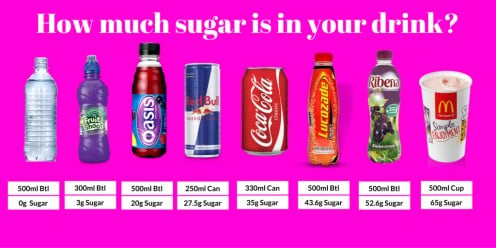
Dangers of Consuming too much Sugar
Everyone is well aware of the rising levels of obesity around the world, particularly in the United States which is has one of the highest obesity levels on earth. There are of course many reasons for rising obesity levels but more often than not the finger is pointed firmly in the direction of refined sugar. Sugar can be found in pretty much every product that comes in a bottle or packet. Basically, if it's not a naturally grown/produced product then chances are it contains added sugar.
Too much sugar in the diet can have a devastating effect on peoples' health. Here are just a few of the dangers of too much sugar:
- Weight gain and obesity
- Increases the risk of diabetes
- Increase the risk of fatty liver disease
- Contribute to mental health issues such as anxiety and depression
- Suppresses the immune system
- Causes premature ageing and greying of the hair
- Causes tooth decay
- Raise bad cholesterol levels
- Increases the risk of heart disease
The UK Sugar Tax
In April 2018 the UK Government introduced a tax on sugary drinks. At the time of the announcement it was backed by a health campaign that highlighted the health risks of consuming too much sugar. There was also a high profile campaign being run by the celebrity chef, Jamie Oliver, that was focused on healthy eating in schools. This became a high profile campaign and it was becoming clear that people would start to turn away from high sugar products.
The big manufacturers such as Pepsi and Coca Cola knew that they couldn't simply pass the cost of the tax onto consumers: they would need to invest significant amounts of money into producing better low-sugar and sugar-free versions of their most popular drinks. And this wasn't just the case in the UK, many countries around the world were waking up to the health risks of high sugar content.
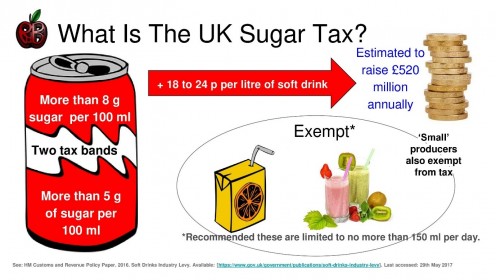
Coca Cola Leading the Way
Both Pepsi and Coca Cola realised that the future was going to be challenging and that they had to adapt. Pepsi, having lost the battle with Coke many years ago with regards to claiming the #1 spot with it's signature product has, for the last decade and more, being putting the majority of promotional weight behind it's sugar-free Pepsi Max product.
Coca Cola, realising that they had, somewhat unintentionally through their marketing campaigns, branded their sugar-free Diet Coke as a 'girls drink' had to introduce a product to challenge Pepsi Max. They have successfully done that with Coke Zero which has become a mainstay in their range of drinks. All of these sugar-free alternatives, and in fact almost all sugar-free sodas that we're so familiar with, are made with Aspartame - an artificial sweetener which is also some 200 times sweeter than sucrose.
Coca Cola, however, have continued to experiment with a range of products in order to meet all customer demands. Noticing the growing interest in natural products, and some whispers about the health concerns of artificial sweeteners such as aspartame, xylitol and sucralose, Coke began experimenting with Stevia in 2008, spending five years carrying out research and development. In 2013 the company launched Coca Cola Life, made available first in Argentina and Chile, and subsequently around the world.
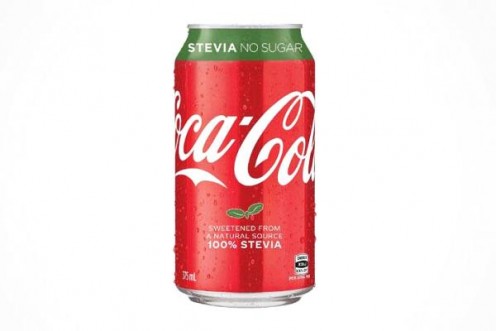
Coca Cola Life was a bit of a compromise. It was made with a mix of Stevia and cane sugar so while it was lower calorie and had a lower sugar content it was not entirely sugar-free. Commercially, the product hasn't done so well and the feedback from consumers has been mixed. It's short stay in the UK market came to an end in June 2017 as it was withdrawn from shelves.
Coca Cola are not done with Stevia just yet, however. In June 2017 the company's Chief Executive, James Quincey, announced that Coca Cola are working on a recipe for a version of their famous drink made with 100% Stevia and no sugar. The drink launched in New Zealand in 2018.
A Video Guide to Stevia
The Future of Stevia
The future for Stevia is looking good and it appears that it is here to stay and will lead the charge for sugar-free products. Sales of drinks containing Stevia continue to rise and the big manufacturers of Stevia products, the leader of which being Purecircle and their product Starleaf, continue to roll out new products and tweak the production process to get the perfect tasting product.
Expect Stevia to be around for a long time to come and perhaps one day a sugar-free drink made with Stevia will become the world's leading soft drink.
This content is accurate and true to the best of the author’s knowledge and is not meant to substitute for formal and individualized advice from a qualified professional.
© 2018 Robert Clarke



